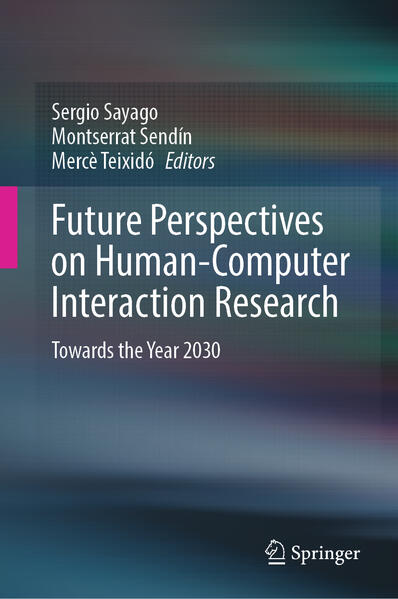
Zustellung: Mi, 09.07. - Sa, 12.07.
Versand in 7 Tagen
VersandkostenfreiBestellen & in Filiale abholen:
This edited book provides some future perspectives on Human-Computer Interaction research and serves as a crucial nexus for reflecting on the paths that have led us here. Technologies are increasingly becoming active agents capable of learning, adapting, and making decisions. The classic User-Centred Design approach that positions the user strictly at the centre may no longer suffice. Putting the human-in-the-loop are crucial elements for trusting AI technologies and building better, more human-centred, ones.
Offering a comprehensive overview of current research and future directions in this field it addresses important topics such as Human-Centred Artificial Intelligence, Augmented and Virtual Reality, User-Centred Design, and Children-Computer Interaction, providing insights into how these areas will continue to influence and transform our interaction with technologies. The chapters are enriched with case studies and examples that illustrate the practical application of methodological approaches and ideas.
Inhaltsverzeichnis
Introduction. - Past, present and future of user-centred design methodologies that empathise with the user and generate better accessible experiences. From theory to practice. - An analysis of videogames to compose an adapted heuristic evaluation. - Towards trustworthy and human-centred AI explanations. - Interactive human-in-the-loop topic modelling. - Mobile augmented reality gamification strategies to promote social skills: Case studies and future challenges. - From past to present: Human-machine interfaces evolve towards adaptivity. - The future of midwife training: Towards a virtual reality haptic obstetric simulator with two points of contact. - Flipping the reality of young children s technology through the 4Cs: Create, connect, communicate, and control. - Conclusion.
Produktdetails
Erscheinungsdatum
25. Oktober 2024
Sprache
englisch
Seitenanzahl
244
Herausgegeben von
Sergio Sayago, Montserrat Sendín, Mercè Teixidó
Verlag/Hersteller
Produktart
gebunden
Abbildungen
X, 232 p. 72 illus., 63 illus. in color.
Gewicht
535 g
Größe (L/B/H)
241/160/19 mm
ISBN
9783031716966
Entdecken Sie mehr
Bewertungen
0 Bewertungen
Es wurden noch keine Bewertungen abgegeben. Schreiben Sie die erste Bewertung zu "Future Perspectives on Human-Computer Interaction Research" und helfen Sie damit anderen bei der Kaufentscheidung.









